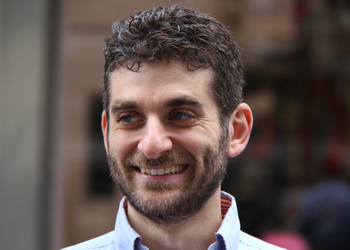About the speaker
Flavio Esposito is an Associate Professor in the Department of Computer Science at Saint Louis University (SLU), and a Fellow of the Research Institute at SLU. He received his Ph.D. in Computer Science at Boston University in 2013 and his MS in Telecommunication Engineering from the University of Florence, Italy. His research interests include computer network management and automation, network virtualization, and cyber-physical systems. Before joining SLU, Flavio was a Senior Software Engineering at Exegy, St.Louis, MO, and a Telecom Engineer at Alcatel-Lucent, Italy. He was also a visiting research scientist at Bell Laboratories, NJ, Raytheon BBN Technologies, MA, Eurecom, France, and Center for Wireless Communications, Finland.
Flavio has received several research and service awards, including the Comcast Innovation Award, and the Outstanding Graduate Mentoring Faculty Award from the School of Science and Engineering at SLU. Currently, he has five active grants from the National Science Foundation.
Abstract
Software-defined infrastructures (Cloud, Edge, and IoT) have opened new opportunities to enhance flexibility and reduce computer network management burdens. The coexistence of such a variety of network services and distributed applications exacerbates the already challenging problem of optimizing resource management while preserving service agreements from providers.
This talk covers some of my research group’s investigations on the design, prototyping, and performance analysis of software-defined service management architectures built to achieve programmability of edge computing mechanisms for several applications: from natural disaster response to telemedicine, from cyber-physical systems for precision agriculture to cyber-human systems. I will discuss a few network management problems solved for NextG or other networks (sometimes with human intelligence, sometimes with artificial intelligence), and some recent work on the design of distributed learning architectures. I will close by discussing a few provocative ways to “orchestrate” networked infrastructures using unconventional signals.
